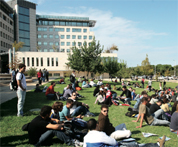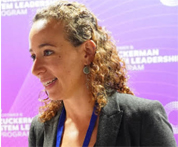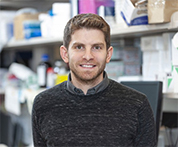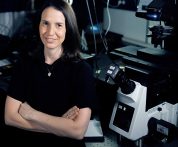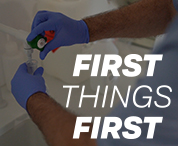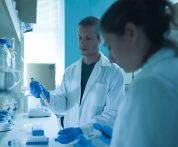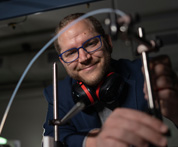Microbes can hijack their hosts, causing disease, or work for their benefit, protecting them from pathogens and helping them to survive in some of the world’s most inhospitable places. Jacqueline Grimm hopes to utilize the beneficial impact of the microbiome to help solve one of the world’s most pressing problems: agricultural adaptation to climate change.
As a laboratory technician at Texas A&M’s Center for Phage Technology, Dr. Grimm investigated the potential of using one of bacteria’s natural predators, bacteriophages, to treat highly drug-resistant pathogens.
She completed her doctorate at Princeton University’s Department of Molecular Biology, where she used a combination of classical genetics and high-throughput sequencing to define a new phospholipid transport pathway in E. coli.
For her postdoctoral work, Dr. Grimm comes to Israel, which is both vulnerable to drought and well-positioned to contribute solutions globally. Plants and microbes never live in isolation, and indeed in regions that are chronically drought-stressed, they live in tight symbiosis, cooperating to survive in conditions that each organism could not survive alone. The desert plant microbiome is therefore a rich reservoir of plant-protective mechanisms.
At the Alexander Silberman Institute of Life Sciences at The Hebrew University of Jerusalem, Dr. Grimm builds synthetic microbial communities, a unique approach which helps to disentangle the mechanisms behind these mutually beneficial plantmicrobe associations, with the ultimate goal of applying them to increase the resilience of agricultural crops to extreme heat and drought events.
 ISRAELI COUNCIL FOR HIGHER EDUCATION
ISRAELI COUNCIL FOR HIGHER EDUCATION MIT-Israel Zuckerman STEM Fund for Faculty Collaboration
MIT-Israel Zuckerman STEM Fund for Faculty Collaboration The Zuckerman Travel and Research STEM Fund at Harvard
The Zuckerman Travel and Research STEM Fund at Harvard Zuckerman AI Fund at Technion
Zuckerman AI Fund at Technion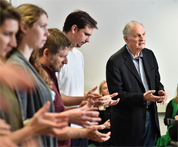 Alan Alda Communicating Science
Alan Alda Communicating Science Zuckerman Institute – ScienceAbroad
Zuckerman Institute – ScienceAbroad Zuckerman Institute – America-Israel Friendship League partnership
Zuckerman Institute – America-Israel Friendship League partnership



